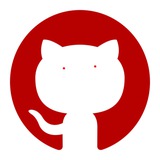CVE-2024-3094
Malicious code was discovered in the upstream tarballs of xz, starting with version 5.6.0. The tarballs included extra .m4 files, which contained instructions for building with automake that did not exist in the repository. These instructions, through a series of complex obfuscations, extract a prebuilt object file from one of the test archives, which is then used to modify specific functions in the code while building the liblzma package. This issue results in liblzma being used by additional software, like sshd, to provide functionality that will be interpreted by the modified functions.
Github link:
https://github.com/been22426/CVE-2024-3094
Malicious code was discovered in the upstream tarballs of xz, starting with version 5.6.0. The tarballs included extra .m4 files, which contained instructions for building with automake that did not exist in the repository. These instructions, through a series of complex obfuscations, extract a prebuilt object file from one of the test archives, which is then used to modify specific functions in the code while building the liblzma package. This issue results in liblzma being used by additional software, like sshd, to provide functionality that will be interpreted by the modified functions.
Github link:
https://github.com/been22426/CVE-2024-3094
GitHub
GitHub - been22426/CVE-2024-3094: CVE-2024-3094 실습 환경 구축 및 보고
CVE-2024-3094 실습 환경 구축 및 보고. Contribute to been22426/CVE-2024-3094 development by creating an account on GitHub.
CVE-2018-14847
MikroTik RouterOS through 6.42 allows unauthenticated remote attackers to read arbitrary files and remote authenticated attackers to write arbitrary files due to a directory traversal vulnerability in the WinBox interface.
Github link:
https://github.com/tausifzaman/CVE-2018-14847
MikroTik RouterOS through 6.42 allows unauthenticated remote attackers to read arbitrary files and remote authenticated attackers to write arbitrary files due to a directory traversal vulnerability in the WinBox interface.
Github link:
https://github.com/tausifzaman/CVE-2018-14847
GitHub
GitHub - tausifzaman/CVE-2018-14847: This is a proof of concept of the critical WinBox vulnerability (CVE-2018-14847) which allows…
This is a proof of concept of the critical WinBox vulnerability (CVE-2018-14847) which allows for arbitrary file read of plain text passwords. The vulnerability has long since been fixed, so this ...
CVE-2021-23017
A security issue in nginx resolver was identified, which might allow an attacker who is able to forge UDP packets from the DNS server to cause 1-byte memory overwrite, resulting in worker process crash or potential other impact.
Github link:
https://github.com/Cybervixy/Vulnerability-Management
A security issue in nginx resolver was identified, which might allow an attacker who is able to forge UDP packets from the DNS server to cause 1-byte memory overwrite, resulting in worker process crash or potential other impact.
Github link:
https://github.com/Cybervixy/Vulnerability-Management
GitHub
GitHub - Cybervixy/Vulnerability-Management: NGINX Security Hardening & Vulnerability Remediation Analysis of critical CVEs (CVE…
NGINX Security Hardening & Vulnerability Remediation Analysis of critical CVEs (CVE-2021-23017, HTTP/2 DoS flaws) in outdated NGINX versions, with actionable steps for mitigation: upgrades...
CVE-2024-45436
extractFromZipFile in model.go in Ollama before 0.1.47 can extract members of a ZIP archive outside of the parent directory.
Github link:
https://github.com/srcx404/CVE-2024-45436
extractFromZipFile in model.go in Ollama before 0.1.47 can extract members of a ZIP archive outside of the parent directory.
Github link:
https://github.com/srcx404/CVE-2024-45436
GitHub
GitHub - srcx404/CVE-2024-45436: exploit script for CVE-2024-45436
exploit script for CVE-2024-45436. Contribute to srcx404/CVE-2024-45436 development by creating an account on GitHub.
CVE-2023-27163
request-baskets up to v1.2.1 was discovered to contain a Server-Side Request Forgery (SSRF) via the component /api/baskets/{name}. This vulnerability allows attackers to access network resources and sensitive information via a crafted API request.
Github link:
https://github.com/lukehebe/CVE-2023-27163
request-baskets up to v1.2.1 was discovered to contain a Server-Side Request Forgery (SSRF) via the component /api/baskets/{name}. This vulnerability allows attackers to access network resources and sensitive information via a crafted API request.
Github link:
https://github.com/lukehebe/CVE-2023-27163
GitHub
GitHub - lukehebe/CVE-2023-27163: CVE-2023-27163 Request-baskets up to v1.2.1 was discovered to contain a Server-Side Request Forgery…
CVE-2023-27163 Request-baskets up to v1.2.1 was discovered to contain a Server-Side Request Forgery (SSRF) via the component /api/baskets/{name}. This vulnerability allows attackers to access netwo...
CVE-2018-25031
Swagger UI before 4.1.3 could allow a remote attacker to conduct spoofing attacks. By persuading a victim to open a crafted URL, an attacker could exploit this vulnerability to display remote OpenAPI definitions.
Github link:
https://github.com/nigartest/CVE-2018-25031
Swagger UI before 4.1.3 could allow a remote attacker to conduct spoofing attacks. By persuading a victim to open a crafted URL, an attacker could exploit this vulnerability to display remote OpenAPI definitions.
Github link:
https://github.com/nigartest/CVE-2018-25031
GitHub
GitHub - nigartest/CVE-2018-25031: CVE-2018-25031
CVE-2018-25031. Contribute to nigartest/CVE-2018-25031 development by creating an account on GitHub.
CVE-2024-4577
In PHP versions 8.1.* before 8.1.29, 8.2.* before 8.2.20, 8.3.* before 8.3.8, when using Apache and PHP-CGI on Windows, if the system is set up to use certain code pages, Windows may use "Best-Fit" behavior to replace characters in command line given to Win32 API functions. PHP CGI module may misinterpret those characters as PHP options, which may allow a malicious user to pass options to PHP binary being run, and thus reveal the source code of scripts, run arbitrary PHP code on the server, etc.
Github link:
https://github.com/Gill-Singh-A/CVE-2024-4577-Exploit
In PHP versions 8.1.* before 8.1.29, 8.2.* before 8.2.20, 8.3.* before 8.3.8, when using Apache and PHP-CGI on Windows, if the system is set up to use certain code pages, Windows may use "Best-Fit" behavior to replace characters in command line given to Win32 API functions. PHP CGI module may misinterpret those characters as PHP options, which may allow a malicious user to pass options to PHP binary being run, and thus reveal the source code of scripts, run arbitrary PHP code on the server, etc.
Github link:
https://github.com/Gill-Singh-A/CVE-2024-4577-Exploit
GitHub
GitHub - Gill-Singh-A/CVE-2024-4577-Exploit: PHP CGI Parameter Injection Vulnerability (RCE: Remote Code Execution)
PHP CGI Parameter Injection Vulnerability (RCE: Remote Code Execution) - Gill-Singh-A/CVE-2024-4577-Exploit
